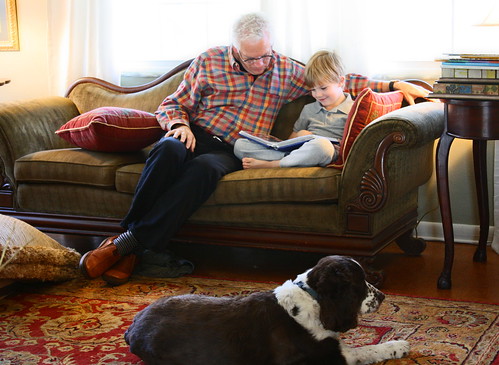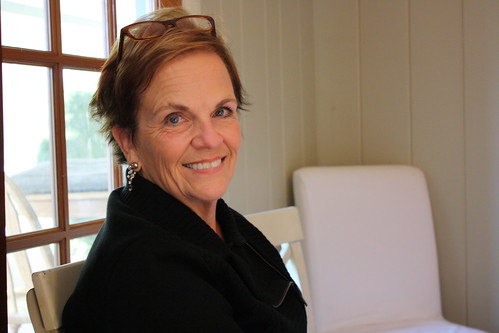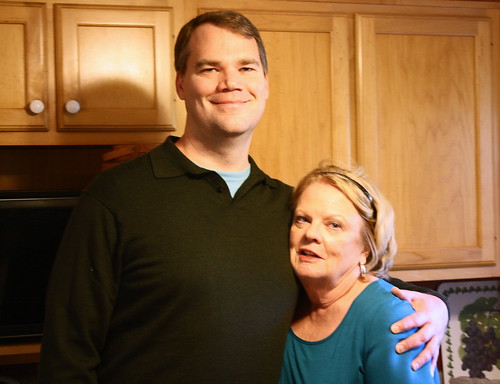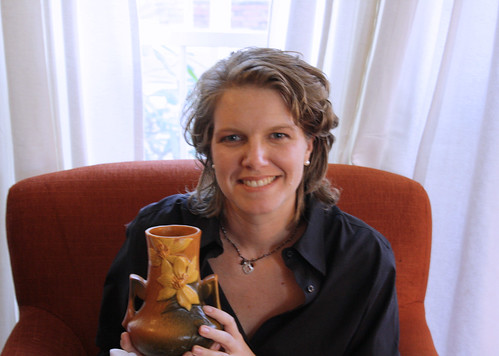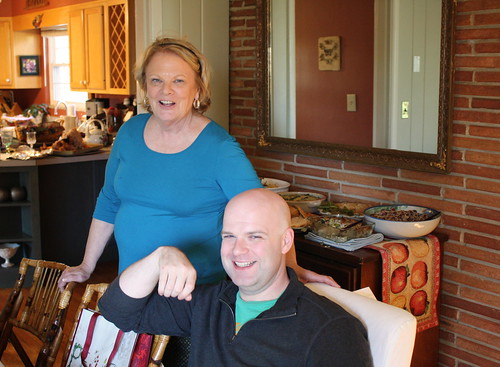Well, hey there, you who have been so kind as to come by and read me all month. This was fun! And here's a thing: today was not only the last day of my Month-Long Blogging Festival, it was the last day of the six months that I have had no health insurance, the six months that I
needed to have no health insurance in order to be eligible for the federal government's
Pre-Existing Condition Insurance Plan.
Made it! Exhalation.
I feel like there are too few people here in the US who are willing to lay bare the details of this issue and how it actually works out in their lives. It is partly from a sense of shame, I think, or
something that has us convinced that our insurance status and our insurability is a personal, private problem and not a social, structural one. That if you don't have insurance, you have failed. But hi, have we met? I'm willing to share, I certainly don't think Matt and I have failed, and I thought the details might be of interest to somebody.
At the beginning of 2009, Matt got some money from the sale of another company he'd worked for, and was able to leave the job he had here in Atlanta and start his own game company. We continued our family group medical and dental coverage through
COBRA. For those who don't know, having COBRA coverage is like still being a member of your employer's group plan, only you pay the premium yourself, with no employer contribution. That cost $1100 a month for the four of us and lasted for eighteen months. Somewhere around the thirteenth month of that coverage, I got diagnosed with breast cancer and started the full ride of surgery and chemotherapy, paid for by insurance.
As the summer of 2010 wore on, and I finished my chemotherapy, we started to work on what to do about insurance when our COBRA ran out. I discovered that if Matt were to divorce me, it would extend my coverage another eighteen months. Yet we decided to stay married. He and his business partner got an insurance broker and shopped for small group plans to cover themselves, the kids, and any future employees. I stayed out of their group because I knew that, as small as the group was, with my medical history they would either be denied outright by the underwriters, or would be charged a jacked-up premium.
I figured that I was on my own, insurance-wise. I wanted to avoid the individual market like the plague, as it is not subject to even the meager regulations of group healthcare. (Of course, what I now know is that with a cancer diagnosis in my medical history, I am uninsurable on the individual market, for any amount of money.) Then I discovered
HIPAA, the Health Insurance Portability and Accountability Act of 1996.
Listen, 'cause you might need to know this, and nobody makes this info easy to find. What HIPAA meant in my case was that, because I had: a) been covered continuously for at least the previous 18 months, and; b) been last covered by an employer's group plan; and c) taken their COBRA coverage for as long as permitted, I was
entitled to purchase an individual policy from the company who had been insuring me, as long as I converted to the individual policy within 63 days.
Do you get that? This is huge. If you are reaching the end of your COBRA coverage, your health insurer (or in some cases, the state you live in) is
legally required to convert your group policy to an individual policy. And the premium they can charge you has some slight legal restriction upon it, it isn't completely unregulated like the pure individual market. So if you can pay, you will not lose your coverage.
BUT, and this is a big but, if you have anything wrong with you at all, they will not tell you about this HIPAA conversion, and when you call and ask about it, they will know nothing about it. That last part is not an act; the frontline customer service people will not know anything about this. If you are lucky, you may reach a department manager who might know what you're talking about, but they almost never deal with this, it seems. I understood why when I saw their rate sheet.
Lemme back up and tell you that the first time I called the insurance company and said I wanted to see about converting my COBRA into an individual policy, they said, "Okay, we'll send a conversion packet out to you!"
But they did not do that. Not the first through fifth times I called. Reader, I don't even remember the details of all the ways I escalated this. I do know that I emerged from all of it as some kind of hardy swashbuckler. At one point I got to someone semi-knowledgeable and she said, "Oh, the state of Georgia will handle your conversion policy," and I had to explain that yes, Georgia will do that if your previous employer group's benefits were self-funded. If not, as in our case, the conversion policy comes from the company that provided the group coverage. I had already talked to the state insurance commissioner's office, and I told the company this. They were like, OH, okay, right, got it!
What I thought, over and over again, was, "What do dumb people do?" Seriously, what if you don't have the time, wits, patience, and capacities to deal with this stuff? And I was feeling well. What if you are really suffering and vulnerable? This goes way, way beyond being your own advocate, like we're always told to do. I have asked that exact question, what do dumb people do, to a few different medical professionals. They all say some variation of, "It is a catastrophe and they die."
Okay, so finally, I extracted a heavily photocopied rate sheet for various individual coverage scenarios. Matt took one look at it and said, "Oh, these are the 'fuck you' prices." And they were. To continue our group coverage for the four of us would have cost over $3000 a month. It was clear, patently clear, that they don't expect anyone to buy these plans. No way. But with Matt and the kids safely enrolled in his company's new small-group policy, I ran my finger down the page and found an single individual option for just me. It cost $1368 a month, and I signed up.
During that period, I had radiation therapy and reconstructive surgery. We paid that premium until this summer, when I got notice that at my one-year coverage anniversary, it would go up to $1800 or so. If it continued. I had the feeling that they were constantly looking for a way to rescind the policy and end my coverage. And that $1300 a month, on top of everything else, was really hurting us.
I just thought, "How are people doing this?" I mean, Matt and I were not improvident, we were not reckless. One or both of us has always worked, and we have had continuous insurance coverage our entire lives. We are thrifty, brave, clean, and reverent. Also, and I'm no Max Weber, but by most any definition, we find ourselves in the upper middle class, and were lucky enough to afford the higher and higher rates that we had to pay to get this far. And yet, even though I don't think we made any "bad lifestyle choices," this situation was a total colossal fucking nightmare. I mean over and above the nightmare of life-threatening illness. So how are people doing this?
I've read that
half of all Americans have what are considered pre-existing conditions that affect their insurability.
Around that time, my mother showed me an article about the PCIP part of the health reform act. I had looked at it before and noted that one of its eligibility requirements is that you have been uninsured for six months prior to enrollment. That always seemed wrong and unworkable to me. But I'd reached a point where my active treatment was over and my health was good. And I didn't know what else to do. I might have tried to get into Matt's small group plan, but even if I could have been added to it without waiting for open enrollment period, I thought that when their open enrollment came around, my medical history would swamp their little boat, and I didn't want to imperil the coverage they had found for their families.
So I stopped paying my continuation premium. I talked to Matt about it. I worried and sweated over it. Then I was like, well, I'm doing this. I checked to be sure there was a medical rider on our car insurance. Then I tried to stay healthy. I thought if I broke an ankle or something, if it amounted to less than the premiums would have been, we were ahead. And if the worst happened and my cancer came back, well, I thought, that's what bankruptcy is for.
And so far, knocking wood, nothing bad has happened.
So now I can apply to be covered in the pre-existing condition insurance pool in my state, and it will cost $264 a month for the standard plan or $356 for the extended plan. These PCIP pools are a temporary measure, designed to bridge the gap between now and 2014 with the health care exchanges are supposed to come into being. Don't know how that's gonna work.
Whew. Did anyone actually read this? That's my story. I don't actually know what to say by way of closure. I hope there was some helpful info in here if you are in a position to need it.
Love you guys,
b














